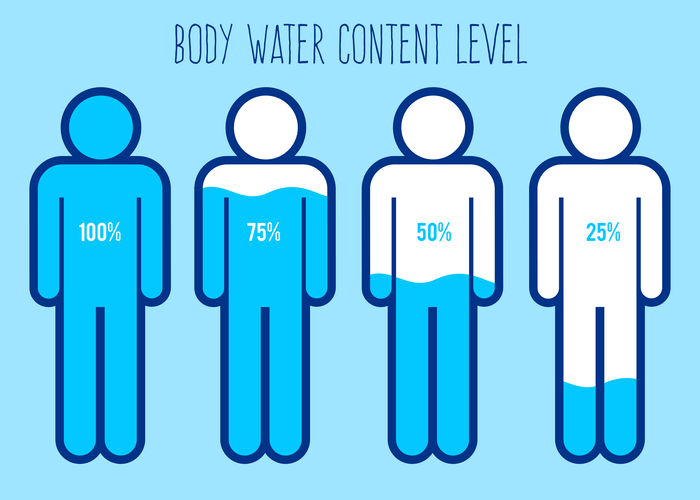The Immune System through the Lens of Alcohol Intake and Gut Microbiota PMC
The bottom line is, it is best to avoid drinking during illness if you want to feel better quicker. People who drink heavily over a long period of time are also more likely to develop pneumonia or tuberculosis than the general population. The World Health Organization (WHO) links about 8.1 percent of all tuberculosis cases worldwide to alcohol consumption. Chronic drinking can affect your heart and lungs, raising your risk of developing heart-related health issues. Over time, drinking can also damage your frontal lobe, the part of the brain responsible for executive functions, like abstract reasoning, decision making, social behavior, and performance.

The Impact of Alcohol on Your Body
After drinking 10 to 12 units of alcohol, your co-ordination will be highly impaired, placing you at serious risk of having an accident. The high level of alcohol has a depressant effect on both your mind and body, which makes you drowsy. We can all https://jugmedia.info/the-ultimate-guide-to-9/ experience temporary and long-term effects of alcohol, depending on our consumption. When alcohol damages the gastrointestinal tract’s barrier, bacteria and toxins can enter the bloodstream easily, potentially leading to septicemia and sepsis.
- If you’d like to reduce or quit drinking, there are innovative new options for support.
- A diverse, complex and dynamic population of microorganisms, called microbiota, which exert a significant impact on the host during homeostasis and disease, supports this role.
- “When you’re feeling run down or like you might get sick, you want to be well hydrated so that all the cells in your body have enough fluid in them and can work really well,” Favini says.
- Numerous studies have demonstrated that ethanol, its metabolites, and alterations of the gut microbiome suppress intestinal tight junction protein expression [58,59,60,61] producing that the epithelial layer becomes leaky or “permeable”.
- In people assigned female at birth, consuming more than four drinks in one sitting is considered binge drinking.
Alcohol Use As a Risk Factor in Infections and Healing: A Clinician’s Perspective

Recent studies have shown that the microbiome modulates immunity in the gut, and in turn, immunity modulates the microbiome in the gut (Belkaid and Hand 2014). Only two studies have examined alcohol-induced changes in colonic (Mutlu, Gillevet et al. 2012) and fecal microbiomes (Chen, Yang et al. 2011), and both studies focused on individuals with AUD. Molecular mechanisms of the dose-dependent effects of alcohol on the immune system and HPA regulation remain poorly understood due to a lack of systematic https://www.townecentremall.com/page/2/ studies that examine the effect of multiple doses and different time courses. There may be important differences in the effects of ethanol on the immune system depending on whether the study is conducted in vitro or in vivo, as the latter allows for a complex psychogenic component in which stress-related hormones and immune-signaling molecules interact. In addition, most studies have been done in vitro using primary cells or cell lines in the presence of rather high, constant doses of ethanol.
Interplay Between Alcohol-Induced Stress & Immunity
- The interaction between the liver immune system and the microbiome, under normal health conditions, is limited.
- Alcohol can have a range of harmful effects on the body, which can diminish a person’s immune response and put them more at risk for COVID-19.
- In other studies, chronic alcohol feeding impaired Th1 responses to a hepatitis C virus protein, a defect that was hypothesized to result from impaired secretion of IL-2 and GM–CSF by dendritic and T-cells (Geissler et al. 1997).
Many plants in the woods make phytoncides and other substances you breathe in that seem to bolster your immune function. The monkeys classed as heavy drinkers showed diminished responses to the vaccine, compared with the monkeys that consumed sugar water. But the investigators were surprised to find that the monkeys deemed as moderate drinkers demonstrated an enhanced vaccine response. In 2016, the harmful use of alcohol resulted in some 3 million deaths (5.3% of all deaths) worldwide and 132.6 million disability-adjusted life years (DALYs), i.e., 5.1% of all DALYs in that year.
The First Line of Defense: The Effects of Alcohol on Post-Burn Intestinal Barrier, Immune Cells, and Microbiome
The main products of the fermentation of dietary fiber, SCFAs (acetate, propionate and butyrate principally) are considered as one of the main direct or indirect mediators of microbiota–gut–brain interactions [72]. The highest production of SCFAs occurs in the proximal colon, where they are quickly and efficiently absorbed, since only 10% of the acids are excreted with the feces [73]. The rest of the SCFAs reach the circulatory system via the superior or inferior mesenteric vein, reaching the brain and crossing the blood–brain barrier thanks http://stadion.kz/m/news/id/14 to monocarboxylate transporters thus being able to act as signaling molecules between the gut and the brain [74]. Specifically, chronic alcohol consumption could reduce the SCFAs count through the reduction in some Firmicutes genera, such as Faecalibacterium and Ruminococcaceae, on which the production of SCFAs depends [75,76]. Furthermore, it has been described that alcohol consumption would also have effects on other microbiota derived metabolites, leading to increases in branched-chain amino acids [77] and peptidoglycans [78].

- A lung abscess can lead to cough, chest pain, fever, fatigue, night sweats, appetite loss, weight loss, sputum, and, empyema.
- Moreover, immune systems of several nonhuman primate species are similar to those of humans and these animals are susceptible to several clinically important pathogens making them a valuable model to study the impact of ethanol on immunity (Hein and Griebel 2003).
- We could hypothesize that by reducing the gut bacterial load, lower amounts of bacterial components would reach the systemic circulation, leading to reduced activation of pro-inflammatory components.
- The clinical management of all of these conditions may be more challenging in individuals who misuse alcohol because of coexisting immune impairment.
- And prolonged alcohol use can lead to mental health conditions like anxiety and depression.

